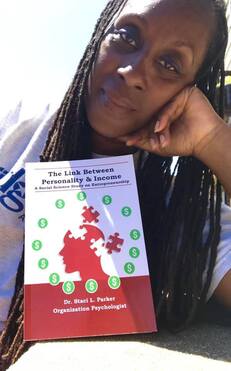 @StaciParker2
@StaciParker2 According to Maslow, all individuals operate on five levels of needs: safety, shelter, social, esteem, and self-actualization. My research confirms that if basic needs are met, higher levels of the hierarchy are fulfilled. This theory is based on the premise that individuals are instinctively motivated by systems attached to fulfilling their beliefs and values, more so than income.
Therefore, the impact of needs on personality affects the income of individuals as it pertains to fulfillment. In my research, I found that in addition to serving as a catalyst to fulfilling these needs, one common source specifically offered what Maslow introduced as self-actualization or the need to achieve on the highest level.
The common source was Mentoring. In my study, need produced satisfaction in individuals that explained why some of the participants in my study experienced such high-income levels, in a short time, while other participants achieved less income but experienced longevity. In my conclusion, I offered mentoring as a link to achieving, what my participants viewed as fulfillment. As a result, I found that mentoring was the most common catalyst of all of the other variables.
Not everyone is born with money, but everyone is born with time, and with the same wisdom intended for both – it is advised to spend both wisely. None of the individuals who participated in my research were asked why he or she decided to become a small business owner; however, given the income levels that many of them achieved, the standard answer might have been that it was for financial gain (achievement). In speculation the participants might have also answered that they did it to fulfill the need to belong (dependability); therefore, recognizing income as a shared source for motivation.
Collectively, the 59 participants in my study contributed more than $5 million to the economy, within a 5-year period,77% of which employed, at least four other individuals; while more than 90% were affiliated with or members of an organization specific to their small business industry. In essence, my research shows that all participants contributed to the wealth of the U.S. economy through small business ownership – high or low income, entrepreneurship traits or not, it is something to be said about the small group that participated in my study and makes me wonder what the contribution might be on a larger scale.
My article is a snippet of the results from my dissertation survey in which many of you participated. Upon receiving my dissertation, I published "The Link Between Personality & Income", a condensed version of the study I conducted on entrepreneurship. The book is available on Kindle and paperback on Amazon. I invite you to find out how I conducted the research and what the results were - you may be surprised at what I found.
Therefore, the impact of needs on personality affects the income of individuals as it pertains to fulfillment. In my research, I found that in addition to serving as a catalyst to fulfilling these needs, one common source specifically offered what Maslow introduced as self-actualization or the need to achieve on the highest level.
The common source was Mentoring. In my study, need produced satisfaction in individuals that explained why some of the participants in my study experienced such high-income levels, in a short time, while other participants achieved less income but experienced longevity. In my conclusion, I offered mentoring as a link to achieving, what my participants viewed as fulfillment. As a result, I found that mentoring was the most common catalyst of all of the other variables.
Not everyone is born with money, but everyone is born with time, and with the same wisdom intended for both – it is advised to spend both wisely. None of the individuals who participated in my research were asked why he or she decided to become a small business owner; however, given the income levels that many of them achieved, the standard answer might have been that it was for financial gain (achievement). In speculation the participants might have also answered that they did it to fulfill the need to belong (dependability); therefore, recognizing income as a shared source for motivation.
Collectively, the 59 participants in my study contributed more than $5 million to the economy, within a 5-year period,77% of which employed, at least four other individuals; while more than 90% were affiliated with or members of an organization specific to their small business industry. In essence, my research shows that all participants contributed to the wealth of the U.S. economy through small business ownership – high or low income, entrepreneurship traits or not, it is something to be said about the small group that participated in my study and makes me wonder what the contribution might be on a larger scale.
My article is a snippet of the results from my dissertation survey in which many of you participated. Upon receiving my dissertation, I published "The Link Between Personality & Income", a condensed version of the study I conducted on entrepreneurship. The book is available on Kindle and paperback on Amazon. I invite you to find out how I conducted the research and what the results were - you may be surprised at what I found.